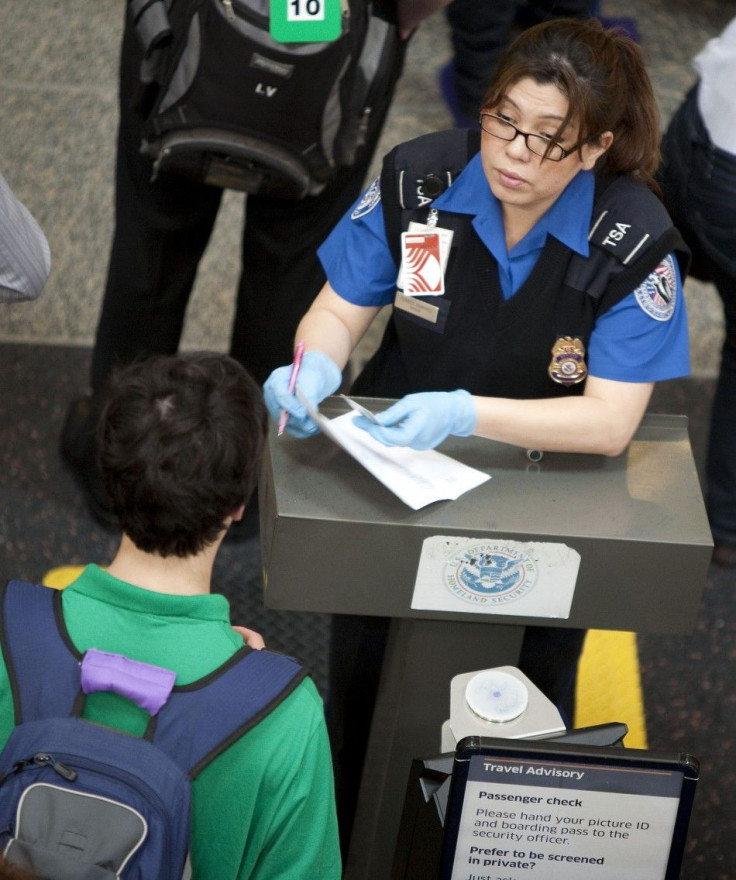TSA Passenger Advocates Sought for All U.S. Airports

After four elderly women complained of humiliating searches by security agents in recent months, two New York politicians urged the Transportation Security Administration (TSA) on Sunday to provide passenger advocates on site at the airport.
Senator Charles Schumer and state Senator Michael Gianaris of Queens wrote a letter to Homeland Security Director Janet Napolitano and TSA Administrator John Pistole stating that an on-site passenger advocate would help strike a balance between security and the protection of vulnerable travelers. It is their hope that the TSA would create this position at all airports.
Released Sunday, the proposal came after an elderly lady claimed that she was strip searched by security officials at JFK Airport in New York. The TSA has vehemently denied these claims, reiterating that it does not conduct strip searches.
At least three other elderly women have since made similar claims. In each case, the TSA denied that strip searches occurred.
TSA does not and has never conducted strip searches, and no strip searches occurred in any of these incidents, reads the official statement posted by TSA blogger Bob Burns.
State Senator Michael Gianaris argued that TSA officials need someone to advocate for passengers in incidents like these.
I appreciate the TSA's work to keep air passengers safe, but passengers should not be humiliated and degraded during their travels, Gianaris said in a statement accompanying the letter.
While the safety and security of our flights must be a top priority, we need to make sure that flying does not become a fear-inducing, degrading, and potentially humiliating experience, Schumer added.
In wake of the recent stir, TSA said Saturday that it is planning its own advocacy service.
The Transportation Security Administration (TSA) strives to provide the highest level of security while ensuring that all passengers are treated with dignity and respect, the agency stated Saturday night. TSA has programs in place for the screening of people with all types of disabilities and medical conditions and their associated equipment.
TSA is in the process of establishing a toll-free phone number dedicated to travelers with disabilities, medical conditions, or those who may require assistance during the screening process. Travelers could call this number to get guidance and information about screenings.
On the official TSA blog, the organization reiterated that it regularly trains its workforce on how to screen travelers with disabilities or medical conditions and has customer service managers on hand at airports to answer questions and assist passengers.
TSA also said that officers at JFK (where three of the incidents occurred) are receiving refresher training to include scenario-based exercises on how to respectfully and safely screen passengers.
Schumer and Gianaris say that is not enough. They want a physical member of the screening crew trained as a passenger advocate who could intervene as problems arise. They've also asked for an official investigation into the women's complaints.
In the initial case, 85-year-old Lenore Zimmerman of Long Beach, New York, said TSA agents took her into a private room in late November and asked her to remove her back brace for screening.
Zimmerman said she had to raise her blouse and remove her undergarments for a female TSA agent, the letter from the senators said.
Another octogenarian, Ruth Sherman, then came forward claiming she too had a similar ordeal just one day earlier at the same JetBlue terminal at JFK. Sherman claims she had to pull her underwear down in a private screening room because TSA screeners wanted to check the bulge from her colostomy bag.
Two other elderly women came forth with similar stories.
Under the Schumer-Gianaris proposal, advocates could be called for in person by passengers if they felt they were inappropriately searched.
© Copyright IBTimes 2024. All rights reserved.






















